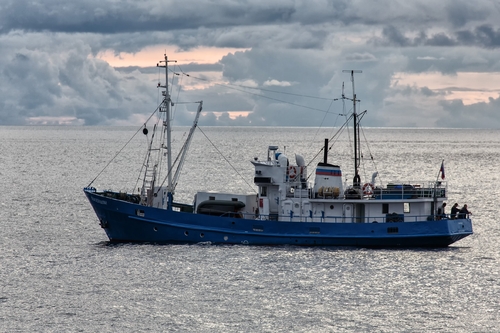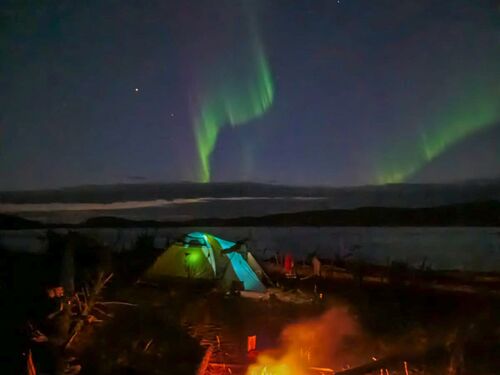On October 15th and November 12th, researchers from the institutes of Northern Water Problems and Biology of KarRC RAS gave lectures on the Republic of Karelia water resources for teachers from Petrozavodsk. The workshop provided teachers of biology, chemistry and geography and tutors with relevant information on current water research and situation in Karelia. This information will be used in activities with schoolchildren.
At these events, Senior Researcher at the NWPI KarRC RAS Geography and Hydrology Laboratory A. Litvinenko gave a detailed presentation of the hydrographic network of Karelia, Senior Researcher at the NWPI Hydrochemistry and Hydrogeology Laboratory G. Borodulina told about groundwater research in Karelia. Head of the IB KarRC RAS Mire Ecosystem Laboratory S. Kutenkov described the features of wetlands in Karelia and Russia. Ì. Zobkov, Head of NWPI Hydrochemistry and Hydrogeology Laboratory, made a presentation about research into the effect of plastics and microplastics on water bodies. The lectures on November 12th were attended also by students of the Petrozavodsk University majoring in Ecology and Management of Natural Resources.
In spring 2020, KarRC RAS experts involved in the project will contribute to the making of educational videos within the project “Education for sustainable water use”.
This project is implemented under the priority “Clean and comfortable region to live” of the Karelia CBC Programme 2014-2020. Karelia Cross-border Cooperation Programme is financed by the European Union, Finland and Russia.
News
See also:

October 20, 2025
Scientists of KarRC RAS stress the importance of monitoring Lake Onego for timely assessment of the wellbeing of its ecosystem
In the summer, Northern Water Problems Institute KarRC RAS carried out field surveys of Lake Onego, collecting material from both the central part of the lake and the bays.
In the summer, Northern Water Problems Institute KarRC RAS carried out field surveys of Lake Onego, collecting material from both the central part of the lake and the bays.

October 19, 2025
Karelian scientists comment on the discoveries winning the Nobel Prize 2025
This week, final announcements of the 2025 Nobel Prize laureates were made. The entire scientific community and the world in general followed the news from the Royal Swedish Academy of Sciences. Specialists at the Karelian Research Centre RAS commented on the prize awards and the implications of the winning work in their own and related fields (in physiology and medicine; physics; and economic sciences), and talked about the research conducted in these areas at KarRC RAS.
This week, final announcements of the 2025 Nobel Prize laureates were made. The entire scientific community and the world in general followed the news from the Royal Swedish Academy of Sciences. Specialists at the Karelian Research Centre RAS commented on the prize awards and the implications of the winning work in their own and related fields (in physiology and medicine; physics; and economic sciences), and talked about the research conducted in these areas at KarRC RAS.

October 17, 2025
Zoologists and ichthyoparasitologists are back from the first Paanajarvi expedition within a large-scope study of the park’s arctic environment
Staff of the Institute of Biology KarRC RAS returned from the first expedition to the Paanajarvi National Park within a new project for integrated study of arctic natural features. Specialists in fish parasitology assessed the species composition and abundance of the Olanga River fishes, first of all grayling and brown trout, and their parasites, while zoologists examined the natural systems where winter track counts and key summertime activities would be carried out.
Staff of the Institute of Biology KarRC RAS returned from the first expedition to the Paanajarvi National Park within a new project for integrated study of arctic natural features. Specialists in fish parasitology assessed the species composition and abundance of the Olanga River fishes, first of all grayling and brown trout, and their parasites, while zoologists examined the natural systems where winter track counts and key summertime activities would be carried out.












